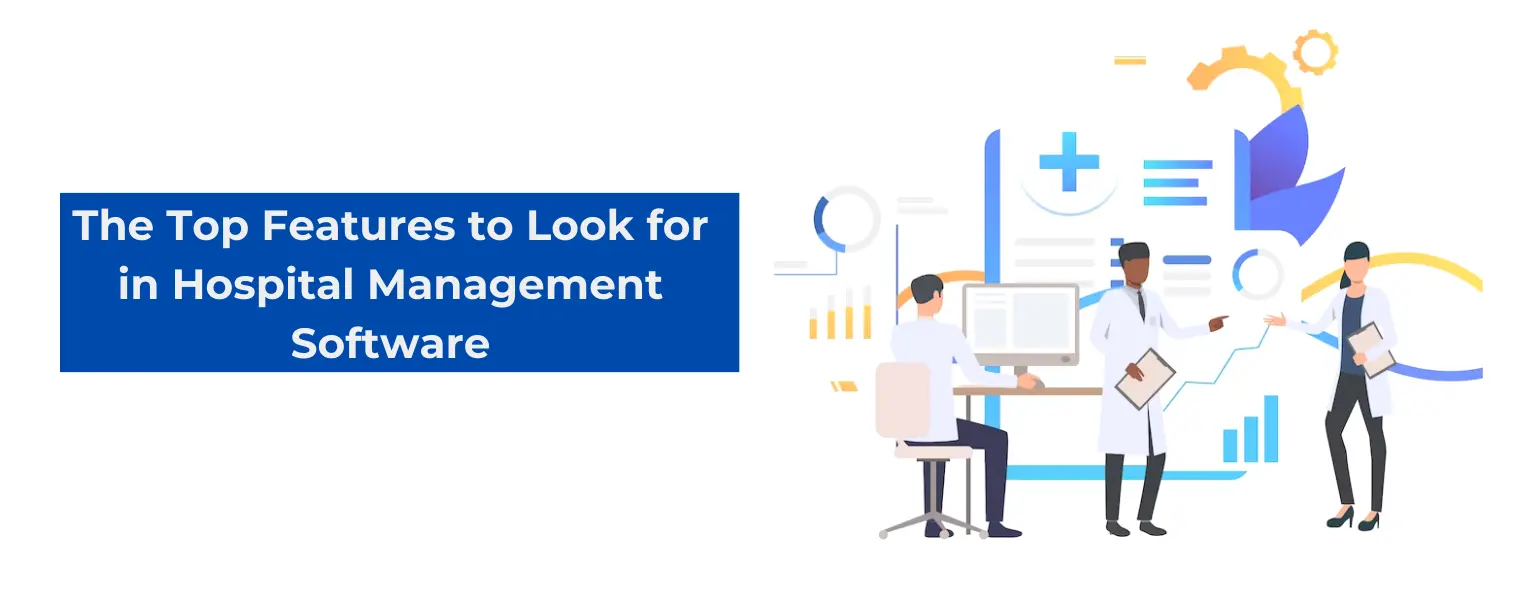
Hospital management software is a powerful tool that can greatly streamline the operations of healthcare facilities, from small clinics to large hospitals. With the plethora of options available in the market, it's important for healthcare providers to carefully evaluate and choose the right hospital management software that aligns with their specific needs and requirements. In this blog, we will explore the top features to look for in hospital management software to ensure that it provides efficient, effective, and comprehensive management of hospital operations.
Efficient patient scheduling is crucial for hospitals to ensure smooth patient flow and optimal resource allocation. Look for hospital management software that offers robust patient scheduling and appointment management features. This may include features such as appointment booking, rescheduling, and cancellation, waitlist management, and automated reminders. The software should also allow for easy tracking of patient appointments, allocation of resources such as doctors, nurses, and examination rooms, and provide real-time visibility into the appointment calendar.
EHRs are critical for modern healthcare facilities, and hospital management software should provide comprehensive EHR management capabilities. Look for features such as electronic patient health record storage, easy retrieval and updating of patient records, e-prescribing, lab results tracking, and medication management. The software should comply with industry standards for data privacy and security, such as HIPAA, and should provide robust access controls to protect patient information.
Efficient billing and revenue cycle management are essential for hospitals to ensure smooth financial operations. Look for hospital management software that offers automated billing processes, accurate invoice generation, payment tracking, and insurance claims management. The software should also include features such as patient eligibility verification, insurance coverage tracking, and claims processing. Additionally, it should provide comprehensive financial reporting and analytics capabilities to help hospitals track revenue, identify payment delays or denials, and optimize revenue cycle management.
Hospitals require a wide range of medical supplies and equipment, and effective inventory management is crucial to ensure their availability when needed. Look for hospital management software that offers inventory management features such as real-time tracking of inventory levels, automated reordering based on predefined thresholds, expiration date tracking, and vendor management. The software should also provide insights into inventory utilization and costs to help hospitals optimize their inventory levels, reduce wastage, and achieve cost savings.
Data-driven decision-making is essential for hospitals to optimize their operations and provide high-quality care. Look for hospital management software that offers comprehensive reporting and analytics capabilities. The software should generate reports on key performance indicators (KPIs) such as patient flow, revenue, resource utilization, and patient outcomes. The reports should be easy to understand, customizable, and available in real-time. The software should also offer advanced analytics capabilities such as trend analysis, predictive analytics, and benchmarking to help hospitals gain valuable insights and make data-driven decisions.
Hospitals often use multiple software systems for various functions, such as EHRs, billing and accounting, and inventory management. Look for hospital management software that offers seamless integration with other systems to ensure smooth data flow and streamlined operations. The software should have the capability to integrate with popular third-party systems and standards such as HL7 for EHRs, EDI for billing, and RFID for inventory management.
Choosing the right hospital management software is a critical decision for healthcare facilities. The software should provide robust features for efficient patient scheduling and appointment management, comprehensive EHR management, billing and revenue cycle management, inventory management, reporting and analytics, and seamless integration with other systems. It should comply with industry standards for data privacy and security and offer ease of use and scalability. DoFort is the Best hospital management software. For more info contact us at info@doforttech.com
Welcome to DoFort !